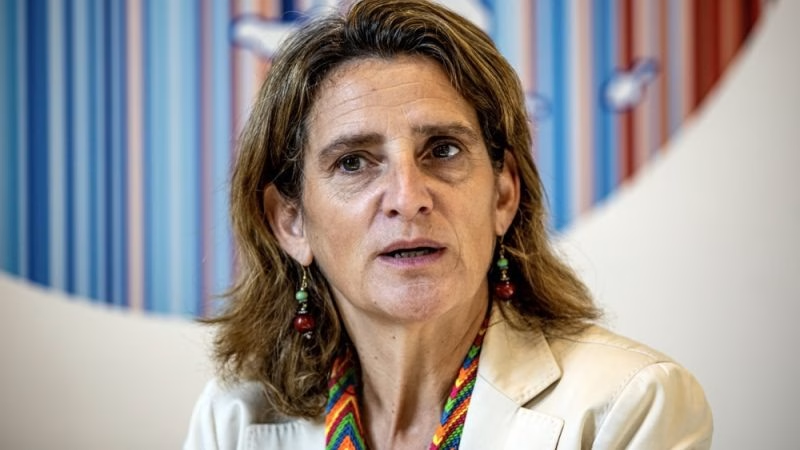Spain’s ecological transition minister, Teresa Ribera, a seasoned environmentalist renowned for her negotiation skills and climate expertise, is set to become a European Union commissioner.
At 55, Teresa Ribera, Spain’s ecological transition minister, is set to join the European Commission, bringing with her a close relationship with Socialist Prime Minister Pedro Sanchez and a “socialist approach” to the role.
European Union chief Ursula von der Leyen will announce her new team of commissioners on Tuesday, with Ribera anticipated to take on a significant portfolio such as economic transformation, environment, or competition, which deals with antitrust enforcement and state aid.
Ribera is expected to accelerate the EU’s Green Deal implementation, aiming for climate neutrality by 2050 despite criticism from the fossil fuel and agricultural sectors, and right-wing political parties. Ribera has emphasized balancing the Green Deal with economic competitiveness, advocating for pragmatic approaches over ideological ones.
Born on May 19, 1969, in an affluent Madrid suburb, Ribera was raised by her writer mother and professor father, and is married to Mariano Bacigalupo, a former executive at Spain’s competition authority CNMC. A law and political science graduate from Madrid’s Complutense University, she began her career in public works before joining Spain’s climate change bureau.
Teresa Ribera previously served as Secretary of State for Climate Change under former Socialist Prime Minister José Luis Rodríguez Zapatero before moving to Paris in 2013. There, she led the IDDRI think tank focused on sustainable development, participated in the 2015 Paris climate agreement discussions, and advised the United Nations on climate issues.
When Pedro Sánchez assumed office in 2018, he appointed her Minister for Ecological Transition. Known for her media presence and fluency in English and French, Ribera is a key figure in Sánchez’s government and well-regarded in Brussels, though her stance against nuclear power has been controversial with some member states.
Greenpeace Spain’s director, Eva Saldana, praised Ribera as a “person of dialogue” with a strong grasp of environmental issues, contributing to significant progress on various fronts.
In Brussels, Ribera was instrumental in reforming the electricity market. In Spain, she has championed green hydrogen, banned wolf hunting, and launched initiatives to protect the Mar Menor lagoon. However, her policies have faced resistance, particularly from farmers.
Spain’s largest farmers’ association, Asaja, has criticized Teresa Ribera for what they describe as an “anti-farmer” bias, expressing concerns about her potential role in Brussels due to her perceived “inflexibility.”
Ribera has been assertive in confronting major figures in the energy sector, including Ignacio Sánchez Galán of Iberdrola and Josu Jon Imaz of Repsol. As minister, she has also had disagreements with Ursula von der Leyen, sometimes finding her too lenient on environmental matters.
Eva Saldana from Greenpeace Spain hopes Ribera will tackle the complex challenges ahead with the courage needed to advance environmental progress.

